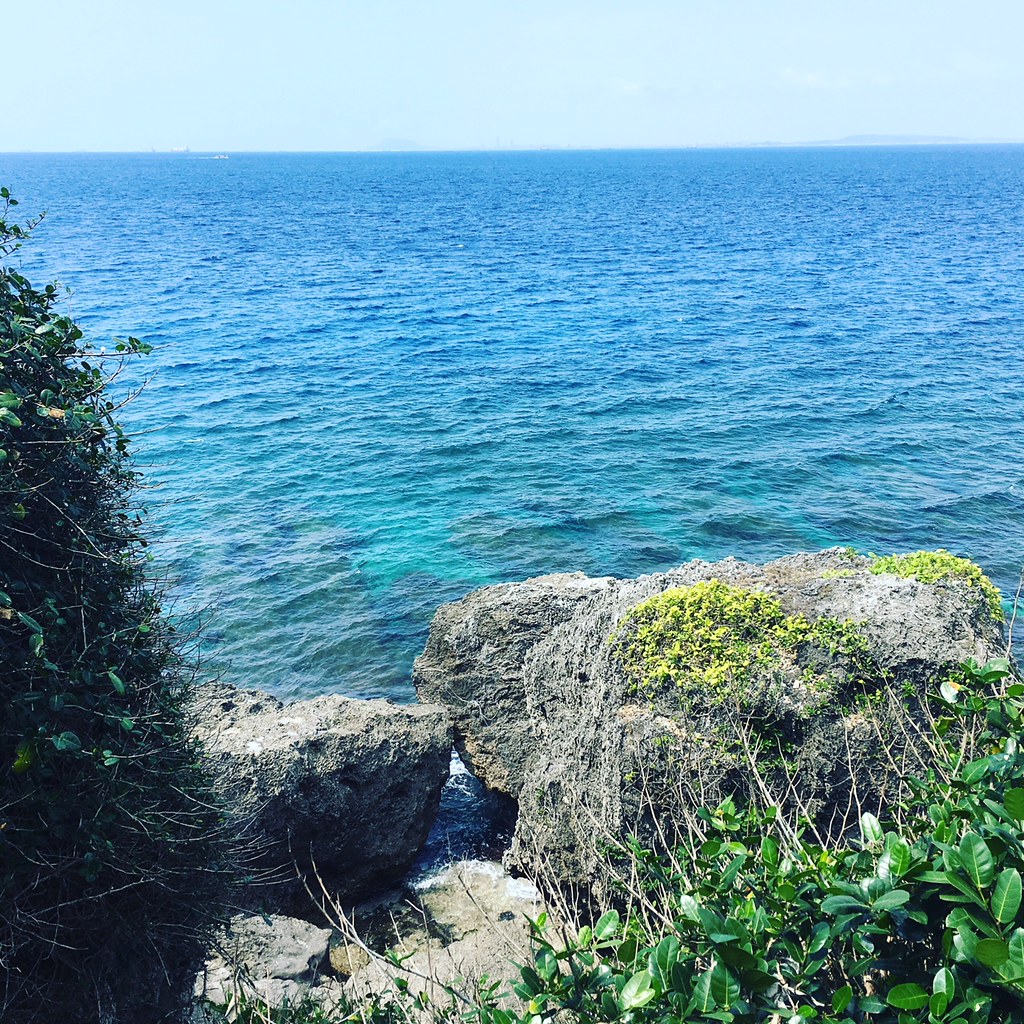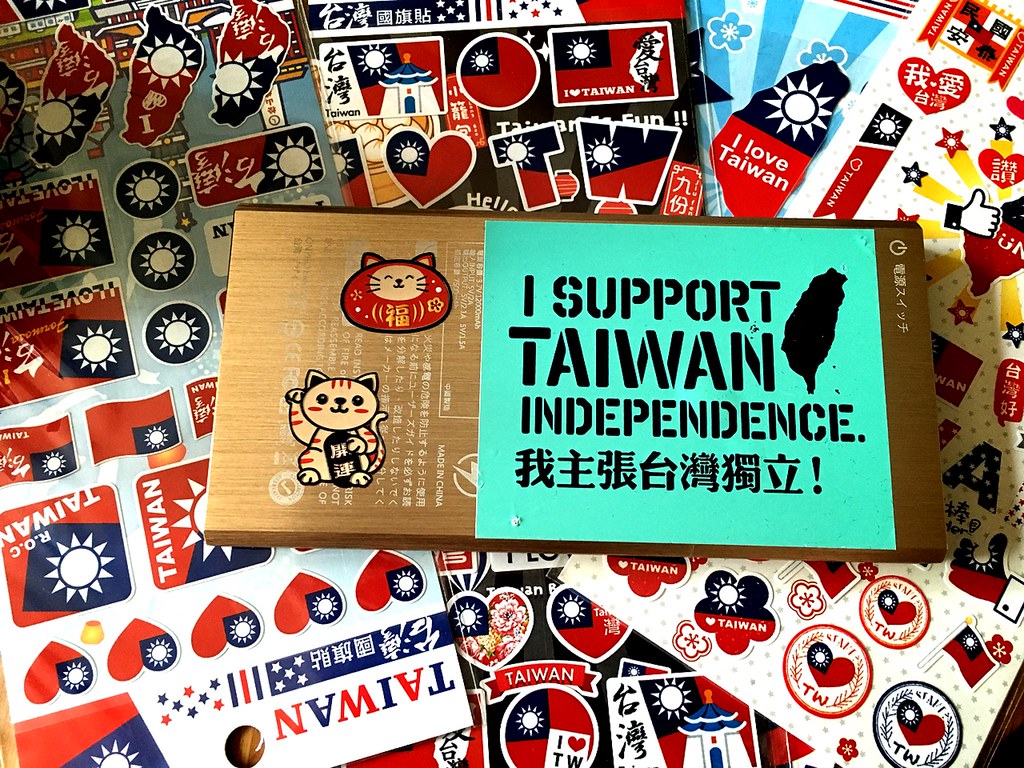Friday, April 20, 2018
Fading Rainbows: my latest for Ketagalan Media
I am super tired with two crazy weeks of teacher training and no weekend break. So, here's a link without fanfare (because I don't have time to create it) to my latest for Ketagalan Media, all about the current state of marriage equality in Taiwan and where we need to go from here.
Tuesday, April 17, 2018
Eldritch Memes: the (clear-cut) case for US support of Taiwan
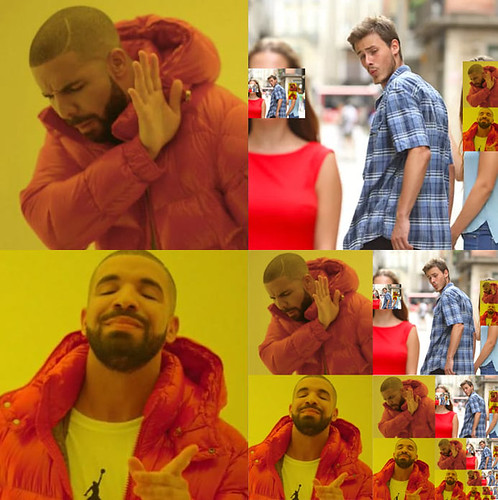 |
| Memes inside memes inside memes inside memes. A fractal of zombie memes. |
Some issues are difficult and complicated, and have no clear "good" answers. Others are clear-cut. Syria may be complex and difficult, but Taiwan? On that, the path forward is clear.
In recent weeks, talk of further intervention in Syria, punctuated by the recent airstrikes, has inspired countless memes - because you know that's totally an intellectually engaged way of communicating - which now march, seemingly of their own volition, across my Facebook feed. Of course these memes are not really self-propelled: they are shambling digital corpses animated by the clicks and likes of real people. They put on a show of being whole thoughts, but are not.
Because I'm a liberal who hangs around liberals, most of these half-formed wights express disagreement with any sort of intervention in Syria.
Of course, what worries me about these sans-serif haunted-meat memes about Syria isn't so much the question of intervening in Syria. My opinion that is something of a Newtonian liquid: hardening at times but subject to fluidity. I don't know enough about Syria to have a firmer opinion on it. Naw, what scares me is how easily I could see the same memes - possibly with the same pictures and text but "Syria" scratched out and "China" inserted - deployed in the event of US assistance to Taiwan, should it come under Chinese attack. What scares me more is that many of them will originate with the 50-cent troll army, but be animated and marched across Facebook by people like my friends. Good people spreading zombie memes opposing US assistance to Taiwan.
Of course, I won't see these eldritch memes for long, because I'll be dead.
More broadly, they express disagreement with the idea that the US should intervene in any international crisis, ever (though to their credit I can generally assume the people sharing these buzzing demi-thoughts do support strong refugee acceptance and settlement programs). They are isolationists - that's not a criticism, I'm just calling that perspective what it is - usually driven by two key worldviews:
1.) That the US cannot be trusted to do any good, and cannot be supported in any attempt to intervene in any international conflict, given our history of being unable to use our military might for good (at least since World War II), instead using it mostly to advance corporate/money-driven or power-driven interests. The US will never intervene for any other reason than to spread its selfish, people-killing empire.
2.) Intervening in any international conflict would create another quagmire the US cannot afford and will not be able to escape from, and will destroy the country in question in the same way that Afghanistan, Iraq and Vietnam were left in shambles, to name a few examples.
I won't deal with the first here - I agree with the sentiment to a great degree, yet not when it comes to Taiwan, and that deserves its own write-up. I'll tackle it later. Today, I'm focused on the second.
Even just a cursory brainstorming makes it clear to me that the "it will be a quagmire! We'll never get out! It will destroy the country!" line of thinking is simply incorrect when it comes to Taiwan. It is often true in other circumstances, and my support for Taiwan does not extend to support for what we did in Iraq.
Here are a few reasons why:
There’s a clear good guy and bad guy. China is the obvious aggressor, a dictatorship claiming a self-ruled, sovereign liberal democracy as its own on specious "historical" grounds and a frankly racist call to ethnicity (they might say "cultural and historical roots" but they really mean that they think Taiwan and China should be the same country because they are ethnically the same). In many other conflicts, there are no clear 'good guys' - look at Syria. There are good people around the world and in Syria who genuinely want something better for their country, but the only players in the war whom we might back, who might be installed as a government, are frankly awful. In Taiwan that's not the case. Our side is very clearly in the right. China wants to not just take Taiwan but delete its freedoms. This isn't "Assad or the rebels, who are also terrible?" This is more like "Europe vs. the Nazis". (The CCP aren't exactly Nazis but the comparison is warranted given their rampant human rights abuses, fascist Big Brother system and straight-up massacres, the comparison is warranted. And who doesn't love punching Nazis?)
What I'm saying is, this is a clear-cut case of dictatorship vs. democracy, self-ruled successful nation vs. expansionist aggressor.
In other conflicts, there was no clear government or path forward after US intervention. Taiwan is a developed democracy (unlike other countries which were turned into a quagmire upon deposing a dictator or junta) with an imperfect but basically successful government. There are clear institutions which, while imperfect, are not horrible and can rebuild. There is no need to replace it - there is no leadership crater left behind. It would be more like Europe rebuilding after WWII than the morass of Iraq.
Unlike in other conflicts, Taiwan actually wants the support. In fact, it's not fair to call it "intervention" - it would be assistance. They can already provide a good amount of military support themselves. Not only does the Taiwanese government want the assurance of assistance, the general consensus in Taiwan is that the people do, too. This isn't Iraq where nobody asked us for help but we barged in anyway, with no real plan. If you are asked for help, you aren't barging in. You aren't intervening. You are supporting and assisting. That's what it means to be an ally.
Taiwan is an important ally, and this isn't about oil. We're one of the US's top trading partners (not as big as China but still essential). We are a bastion of liberal democracy in Asia. We are one of the freest, if not the freest, country in Asia. We are geostrategically important. We are a key global supply chain player, and a lot of global technology runs through us (ever heard of TSMC? Foxconn?). We are ranked the 22nd biggest economy in the world by GDP by the IMF (other organizations don't keep data on Taiwan because China is a jerk about it.) We are developed. We are successful. We have a population similar to Australia's. We do matter. The US economy will take a hit if we go down, not least because we make the chips that run your smartphones. You don't think you'll feel it, but you will, far more than the results of any other conflict.
The US is doing one thing right already. They aren’t just showing up with bombs in Taiwan, nor should they. They are wisely stepping back (well...there’s an interesting discussion to be had here) while peace is maintained. There would only be a question of stepping in if China invaded. Not before. We aren't starting this war, we're stepping in to help an ally if and only if an aggressor attacks. Again, this is the right way to go about being a world leader.
It's actually the right thing to do. Yes, this makes me worried that the US won't do it. We never seem to do the right thing, at least not in my lifetime and not really in my parents' lifetimes either. But for once, we're on the right side! That's amazing and we shouldn't mess it up just because we've done wrong things before. If you get in a bar fight, feel bad about that and swear off fighting - dude, you still step in if you see someone about to get raped, even if it means a fight. "But I swore off fighting" doesn't put you in the right.
Destruction will happen whether we support Taiwan or not (so will casualties). That destruction will come from China, but it will still be destruction. Staying out of the conflict will not stop Taiwan from being destroyed (and if they want to use nuclear weapons - though I doubt they will - they'll do that regardless of whether the US gets involved). Yes, people will die, but people will die in the event of a CCP invasion, and will die under CCP dictatorship. Do you really think Taiwanese people will sit down, shut up and be force-fed a total lack of political freedom and human rights? 400,000 of us went downtown because we didn't like the way the government passed a trade pact. Take away our actual rights? And expect us to accept this? LOL, no. But if you fight the CCP you die or rot in jail.
Destruction is not the worst possible outcome. Destruction can be rebuilt from. CCP oppression is forever. Think of it more like “do we help Europe kick the Nazis out?” - the non-negotiable is kicking out Nazis, not peace and not preserving infrastructure. Destruction is an acceptable sacrifice. Ask most Taiwanese, and they'd rather have to rebuild roads and bridges than be ruled by the CCP.
Taiwan is better-equipped to rebuild. We are a developed, successful nation. We will need aid for a time, but it will be far more limited. We are not a black hole. We have resources and means. This isn't Iraq, Afghanistan or anywhere else that has turned into a horror story. Look at what Taiwan did, in the midst of Martial Law, coming off a massive decline from relative pre-war prosperity. We went from "economic basket case" to "Asian Tiger", and under a horrible dictator at that. It won't be fun, but we have the wherewithal to rebuild.
Taiwan wants peace. We give up a lot, not least our dignity, for peace already. The US assisting in the event of a Chinese invasion is an extreme worst-case scenario which Taiwan also doesn’t want. We're the ones who stand to suffer and sacrifice the most, and obviously we want to minimize the pain. It’s not a country of various groups hell-bent on destruction - we have strong democratic norms in place already. Given that the people and government do want peace and can rebuild, intervention could be limited and short. Nobody here wants war, and so we want that war to end. It won't be an eternal horror show of rebels and gangs driving around shooting things up.
The main goal (and the US is actually right this time) is not war but deterrence. What I - and Taiwan - really want is to avoid this whole scenario by convincing China that Taiwan isn’t worth a fight. But we only get that if we can actually make it look like a fight. We only get THAT by allies that pose a real threat voicing a commitment to assisting Taiwan. It’s a fine line but we’ve done it so far. China cannot be negotiated with on this. This is all the CCP understands when it comes to Taiwan.
This is a real situation, not an abstraction. I am not joking when I say I personally could die. It demands real solutions. Nobody here actually wants this to happen but we need to consider what is available to us, not what we’d like. I doubt many Taiwanese actually want to rely on the US for assistance, and many - including many pro-independence and Third Force thought leaders - are just as disgusted by the horrors and excesses of US global hegemony as I am, and my Western liberal friends are. But if China invades and no better option exists, we must take the best one available to us, imperfect as it is. At that point there is no time for ideology or soapboxing: the non-negotiable isn't "but the US is horrible", it's "we are going to die and if the CCP wins it's literally game over." There is no "but we'll protest!" - no, you'll die. There is no "we'll keep fighting" - you will, because that's what Taiwanese do when they want something better - but you will lose and also die. "We'll refuse to be ruled by them!" Yup - I guess the CCP can't rule you if you are dead. "We'll occupy" - and die. If you don't believe me, ask people from Tiananmen - - oh wait, you can't, because they are dead.
(OK they're not all dead, but enough of them are to make my point.)
This is real life, and in real life there is a time for ideology, and a time to look at your real choices and decide what your non-negotiables are. If your non-negotiable is that the CCP can't win - and it really should be - you have to take options you don't like. If your non-negotiable is not accepting aid from an evil hegemon, then congratulations, you're about to be ruled (or just killed) by an even more evil hegemon.
It doesn't have to take away from benefits to US citizens. Really! Our military spending, just from a quick Google, is upwards of $600 billion. China's is estimated to be maybe half that, upwards of $200 billion (not that we actually know anything about China, so this is an educated guess). I am not a military or defense analyst, so I won't belabor this point, but there are a lot of numbers between $200 and $600 billion where we'd still have the best-funded military in the world and still be capable of a stronger military than China. We could cut our budget in half and still have better funding. (If any actual analysts think I'm wrong, please weigh in).
Monday, April 16, 2018
Crystal Boys (孽子): A Review
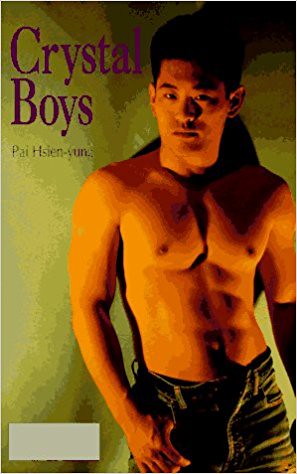 |
| The gray square is covering the words "First modern Asian gay novel". I don't know why the square is there. |
I continue to be vexed by Pai Hsien-yung.
Crystal Boys (孽子 or "Sinners" in Chinese), to be sure, was an easier read than Wandering in a Garden, Waking from a Dream for someone who cares about Taiwan directly and viscerally, in ways that affect her life, and cares about China only in that fuzzy abstract way that one might be interested in foreign affairs. The sensitivity with which Pai writes about these characters is commendable - really the bottom rung of society, if not lower - mostly boys from families who were at the bottom to begin with, who have then been turned out by those families when their sexuality was discovered. Pai manages to both portray them sympathetically and not shy away from the daily indignities not only of their lives, but (in the case of protagonist A-Qing's family) the lives of the families who have kicked them out.
Other than police raids on "New Park" (now 228 Memorial Park) where the young, gay characters spent their nights, there is nothing overtly political in Crystal Boys, and what was there can be said to be more cultural than political. The protagonist characters were more sympathethic - although the Taipei that Pai describes is not the Taipei of today - the capital of the country on the cusp of being the first in Asia to legalize marriage equality - I can see its echoes in the Taiwan I know.
When I first moved to Taiwan over a decade ago, it was still common to use "228 Park" as shorthand for "hunting for gay hookups", with very little sympathy for those who may have gone there for that reason. I now recognize how homophobic such talk was, but I won't deny it was common (I haven't heard that particular reference in at least 5 years, however). The open-air gay bar culture around Ximen feels like an institution now, but it wasn't always there - I mean, Ximen's been a center of LGBT Taipei for some time, but I remember when it wasn't so out in the open. I don't know anyone who has been disowned or chased out of their home by their parents when their sexual orientation was discovered, but I do know people who have struggled when coming out to their families, or who still feel they cannot do so.
I just found myself feeling a bit put out that, with all the empathy Pai can convey when talking about the night kingdom of the 'glass community' (whose citizens were called 'glass boys' or 'crystal boys', hence the English title of the book), he doesn't seem to be able to extend this ability to write empathetically about Taiwan as Taiwan. All of the younger characters were born in Taiwan, but few of them had Taiwanese ancestral roots: to read this book, you would think that almost everyone in Taiwan who mattered either came from China or had parents who did. This...vexes me. Taiwan is more than the sum of people who came from China, but you wouldn't know that to read this otherwise exquisite book.
Pai focuses most of the story on the denizens of "New Park" - homeless or nearly-homeless men and boys who, while not the "hustlers" of Three Rivers Street (as Pai calls them), are essentially prostitutes. If one reads it without knowing Taipei or a sense of what it may be like to live as a gay man - and I specifically mean gay man because there are no Ls, Bs or Ts in this story, only Gs - one might get the impression that all gay men in Taipei are sex workers, which of course is not the case. A few of the characters are not sex workers, but they are involved in the sex trade, e.g. acting as patrons to the boys (or, to use baser term, as sugar daddies). Only through glimpses - cracks in the storyline really - do we see a Gay Taipei that is not centered on prostitution: the college students who timidly come to the park seeking their own, the patrons of the Cozy Nest bar. That's not a criticism of the book so much as a description, but there is a criticism to be made: I could well see someone recommending this book thinking it will open the mind of a potential ally who's on the fence, and having it backfire, because the reader finishes it with the (unfair and inaccurate) impression that "gay = prostitute". This isn't helped by the implication that all of the boys who are 'out', whether they want to be or not, are so because they were discovered in flagrante delicto with another man - which probably is how most closeted gay men were discovered at that time, but still, upon reading Crystal Boys, an unfair stereotype might be confirmed in the mind of the non-discerning reader that gay men are highly sexually promiscuous.
That said, there isn't as much of a plot, per se, as a typical Western reader might expect. It's more of a series of moody set-pieces in which the characters do move forward with their lives, but not a lot...happens really. Yes, (spoiler alerts) a bar gets opened, then closed. One characterachieves his dream of going to Japan. There's a penultimate reckoning between young gay man and stand-in father figure (not his actual father). There's a long-ago New Park love story that ended in tragedy which gets hashed out. But if you're looking for an action-packed storyline, you won't find it. Personally, I'm fine with the slower, more contemplative pace. I appreciated the deep exploration of the loyalties the Crystal Boys had to each other - they formed their own family and community among a society that had kicked them aside.
Otherwise, there are both personal and political threads running through Crystal Boys - although I could find no direct reference to Pai himself being gay, it seems to be generally known that he is, and the scene where Wang Kuilong (the "Dragon Prince") has an angry - and yet sincere and caring - discussion with Papa Fu, retired ROC military officer and benefactor of the boys of New Park and whose own son committed suicide after his homosexuality was revealed - can't be read as anything other than Pai's literary rendering of a real or imagined confrontation with his own father, in which he attempts to see things from his father's perspective. Of course, the perspective can only be read with any degree of sympathy in its own era: the idea that there is any merit to feeling shame because you have a gay son only works if you buy into 'product of his time'-ism. Reading it now, it comes across as trying to defend or find sympathy for, say, a father who is so ashamed that he turns his son out on the street for the crime of being a bit short or maybe a redhead. Pai does explore the ways in which society is kinder to orphans and people born with disabilities or bodily deformities than to gay men, implying that it's unfair to feel charitably towards the former but not the latter, but never quite comes around to making it clear that sexuality is not something you choose.
Politically, Crystal Boys has been read as an allegory of Taiwan as fatherless and adrift at sea - turned out by its father (China) and now skulking about in the twilight of international affairs - a 'sinner', 'monster' or 'bastard son' as the Chinese title implies. Even A-Qing's father comes into this: losing the war, leaving China, being kicked out of the military for having been taken prisoner, he sits in stasis in Taiwan, growing old and rotted: a similar metaphor for the ROC on Taiwan as was employed in Wandering from a Garden, Waking from a Dream. Taiwan (the ROC to Pai) as a 'sinner' adrift in a world that's turned it out on the street is even more notable given that it was published in the early 1980s, when the sting of shifting recognition to the People's Republic of China was still biting. Before Taiwan woke up and realized it didn't actually want to be recognized as 'the true China', but rather simply for what it was: Taiwan.
Some try to find both local (e.g. Taiwanese) and international (e.g. ROC vs. the world) strains of political ideas in it - I have to say, I don't really see that. I do see how Wang Kuilong's and Little Jade's different experiences abroad: one cynical and tragic, the other optimistic and bright, relates to the future (from the book's perspective) of gay life and LGBT activism in Taiwan, and how that was impacted by international cultural forces. However, I do see a surface-level exploration of Taiwan's cultural love affair with former colonial master Japan in Little Jade's quest to go there and find his birth father - Little Jade being the smooth-talking 'bastard' son of an overseas Chinese with a Japanese name, life and family. It's hard not to see colonial allegories in that sub-plot.
But Pai's exploration of this always turns its gaze back to China - Taiwan, the bastard son of China, an international pariah (another way one might translate 孽子). Never just Taiwan as Taiwan, its own mother and father, its own identity and its own family. The Crystal Boys form their own little kingdom and support each other just as the Chinese diaspora in Taiwan did (and does) - but this story of pain, shiftlessness and support is a metaphor with its sights locked firmly on China, not Taiwan.
So - I loved it, but reader, I am vexed.
Tuesday, April 10, 2018
Culture x Water
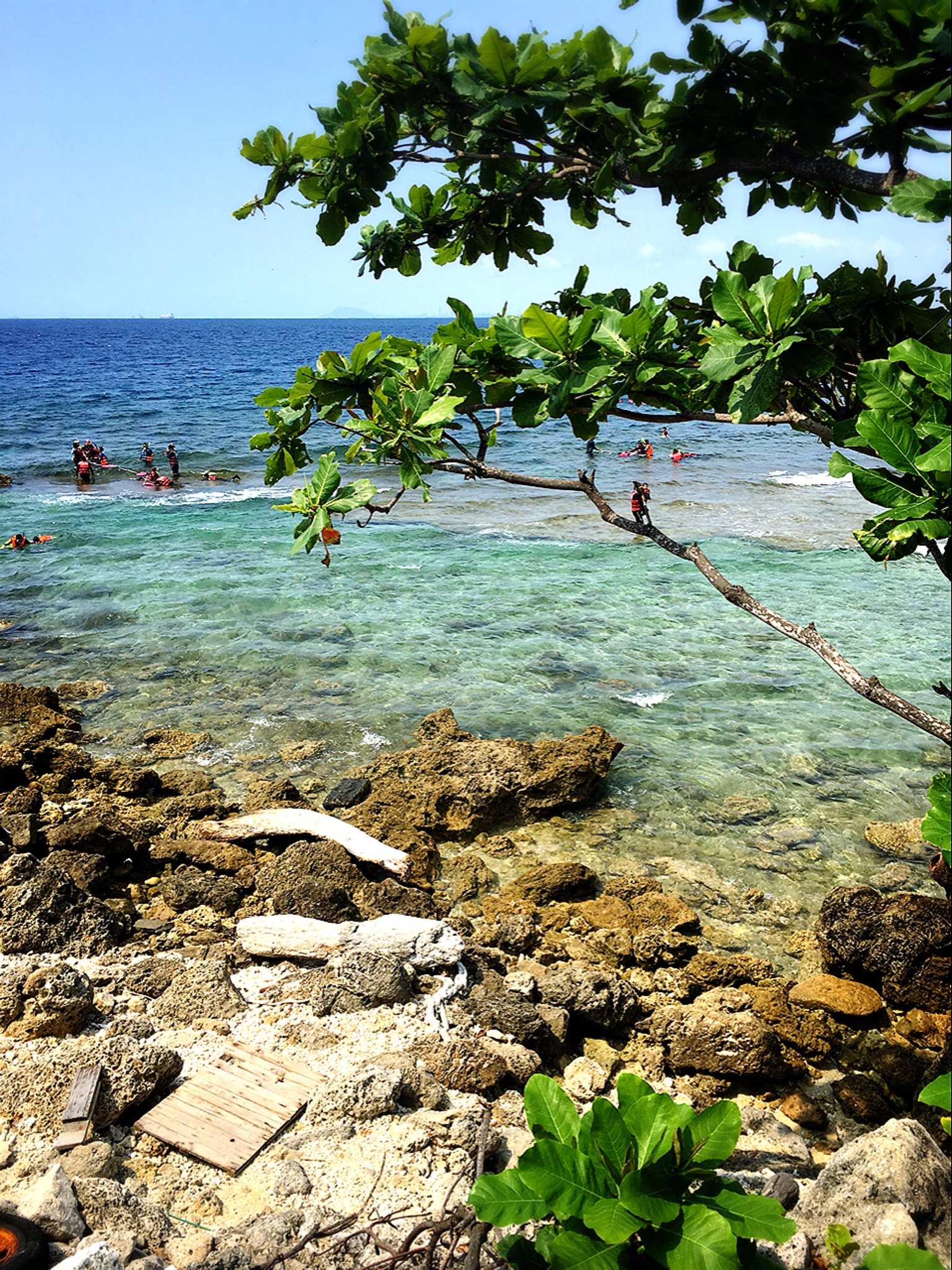
My last paper of the term is done, and I took the Tomb Sweeping holiday to travel around in southern Taiwan simply enjoying time with Brendan and meeting up with some friends. I read Crystal Boys (review coming soon), didn't write anything, generally relaxed and re-learned what it was like to be able to take a nice short trip without academia weighing on my mind.
I sent in that final paper at 6pm on Wednesday. The next morning, we hopped on the HSR to Zuoying, arranging a pickup from the HSR station to the ferry terminal in Donggang (NT600 for the trip - not bad). Little Liuqiu (小琉球), where we spent two nights and, on account of my being thoroughly exhausted from the previous day's push to get my paper in, still didn't manage to see everything. After this we spent the final two days of the long weekend in Kaohsiung and Tainan.
I enjoyed the island's rural sights and did not feel the crowds visiting them were overwhelming. Baishawei, the island's main town, was a different story. I suspect Baishawei is a fine little town to relax in on a non-holiday weekday; over the long weekend, though, it was horrible. Really horrible! I understand getting on a scooter to go out of town - there is a bus that circles the island and you can ride it fairly easily to get anywhere you might want to go - but to get on a scooter to go around Baishawei, whose streets are narrow and made for pedestrians, and the sights within walking distance of it? Come on. I get that it will be crowded, but if people realized that and used their scooters more judiciously, it wouldn't be so bad.
Beyond that, a thought struck me while navigating around Baishawei, which I shared over drinks with a friend who happened to also be on the island - a thought about water, and our orientation to it, and what that means for Taiwanese identity.
People explain away Taiwan's less-than-ideal beach infrastructure and general lack of well-maintained beaches, and the fact that many Taiwanese don't know how to swim despite living on an island, by pointing out that Chinese culture isn't a water-oriented one (leaving aside the fact that historically, Chinese fishermen, explorers, traders, pirates and seafarers have absolutely been an integral part of Chinese culture.) They point out that China doesn't have great beaches - I've been to the one in Qingdao and yeah...not great, and I haven't heard great things about Hainan. Or they mention that Chinese cities tend to be built "with their back to the sea", or generally thinking of the sea as the end of China and not an integral part of their lives. As that same friend pointed out, for a large portion of not-too-distant Chinese history, access to the coastlines was banned (which of course didn't work at all as intended).
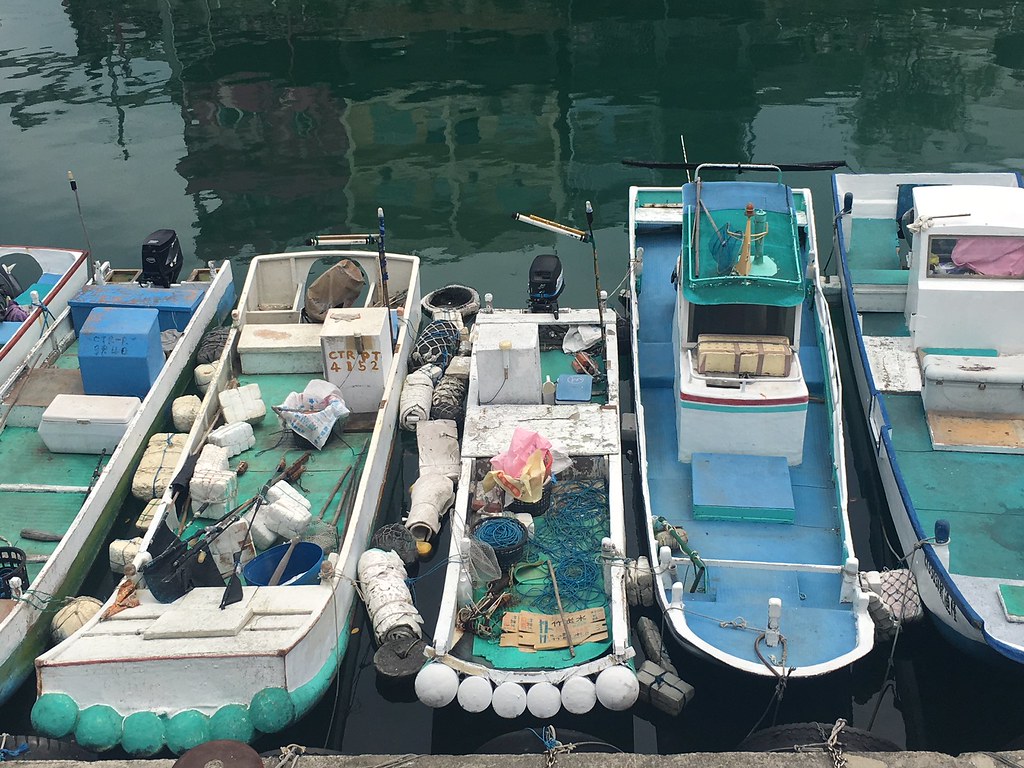
You can see that in Taiwan - for a long time, despite being an island, the coastal waters were off-limits and people "were living more like residents of a landlocked country." In terms of specific beaches, Wai'ao could be a really nice destination, except it's just off a strip of noisy road, backed by ugly buildings and an entertainment complex that is both uninviting and behind a parking area, not actually on the beach. Kenting...I don't like Kenting, let me count the ways. Baishawan allows 10,000 people to churn the water in approximately half a square meter of a long, gorgeous beach. Fulong has that hideous bridge (yes, it needs a bridge, but couldn't it be nicer?) and ugly hotel and is flanked by a lagoon to one side that smells, as one friend who worked in health care put it, "like my sick elderly patients' pee." And that's just to name a few. (Some of the outlying islands fare better.) Taiwan doesn't have a lot of gorgeous, sandy beaches, but what it does have could be better than they are.
I mean, in Taipei we live an MRT ride from the ocean and hardly ever go, because the infrastructure needed to make the beaches really nice places to swim and relax just isn't there. Taiwan's cities do indeed feel as though they are built with their backs to the sea.
But, in Little Liuqiu, I got the sense that it could be different. More kids in the younger generation are learning to swim, Taiwanese Millenials go to the beach and hang out in a way that feels distinctly familiar to me as a coastal American. On Little Liuqiu, I dare say that, while not a "great beach" (too many rocks and coral to cut your feet) Baishawei's beach was a pleasant place to hang out, and other rocky beaches have good snorkeling - and people were taking advantage of that. People were going in the water and enjoying themselves in ways I just didn't see in China (though I haven't been to Hainan).
Note how all of the cultural attitudes towards the sea that I mentioned above are in relation to Chinese culture. But Taiwan is not China - it doesn't have to be this way. Taiwanese history is rooted in Austronesian indigenous culture, and who are seafarers if not Austronesians? Taiwan's deepest history is tied to the sea. It doesn't need to hold to Chinese notions of how the sea fits into their lives, and in fact such an attitude doesn't suit it. Taiwan isn't like China, not least in terms of geography. So why have a Chinese attitude to the ocean?
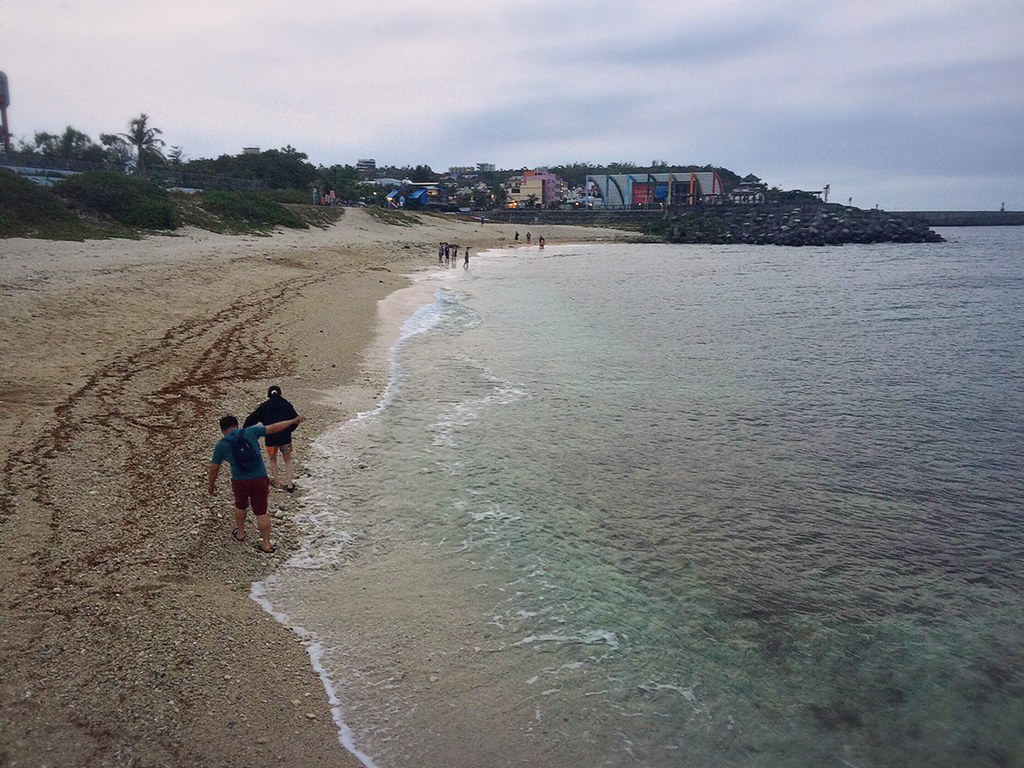
Taiwan can - and I'd argue should - grow its existing beach/sea/ocean culture as a way to not only acknowledge that it is not only a subtropical/tropical set of islands and it makes sense for warm-water island nations to be sea-oriented, but also as a way to differentiate Taiwanese culture from Chinese culture. China can turn its back to the sea - we can turn to face it. It can be a barrier for them, the "end of civilization". On our beautiful ball of mud, we can do things differently.
Taiwan doesn't need to be defined by ideas central to Chinese culture. It has its own culture and can define itself accordingly. Just because something is culturally Chinese doesn't mean it needs to be applied to Taiwan.
And that will be one small, but notable, nail in the coffin of this "Taiwanese and Chinese culture are exactly the same! They have the same history and think and act in the same way!" nonsense bandied about by people who don't know what they're talking about. It's not true, but it's hard to see that if you're just passing through (or are just some Internet bloviator). We need it to be more demonstrably untrue, and a country where the beaches are both lovely and popular would help in its own small way.
This isn't a crazy outsider idea. I'm not trying to push my foreigner thoughts on a local culture - Taiwan is already going down this path and already has more of a historical and current orientation to the ocean than China. So there is no reason why Taiwan can't [continue to] cultivate a sea-facing, sea-loving, ocean-integrated culture that is well-suited to its geography and actual non-Chinese history. Improvements need to be made, but it would be unfair to say we're not on our way.
Anyway, enjoy a few more shots of Little Liuqiu:
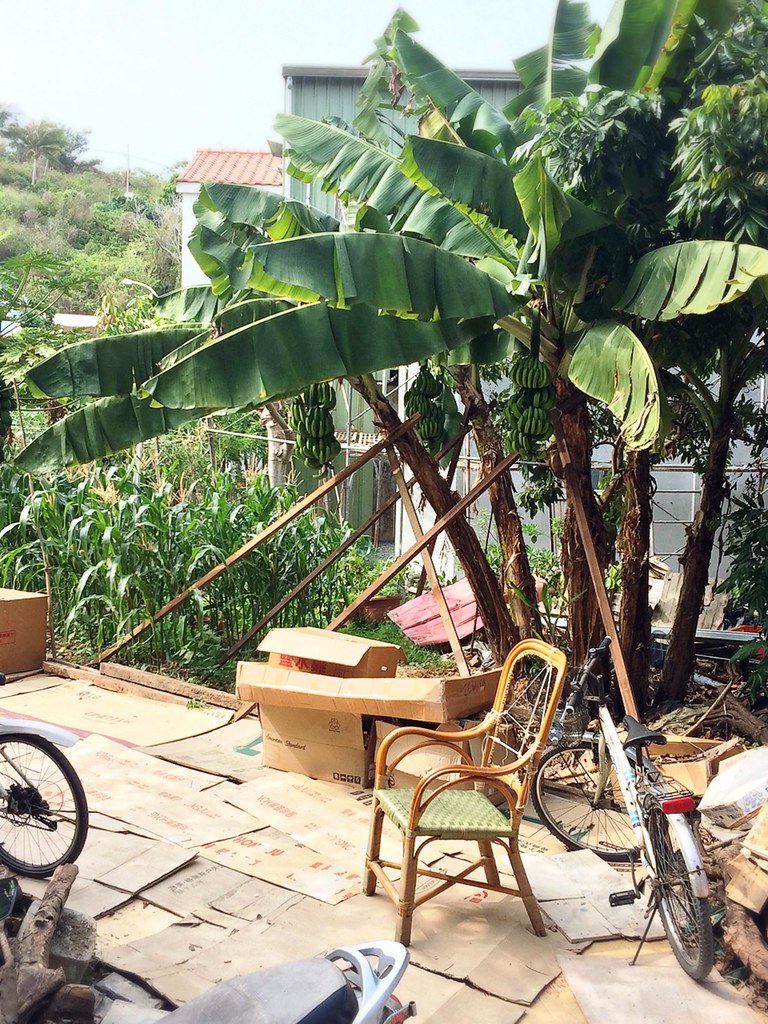
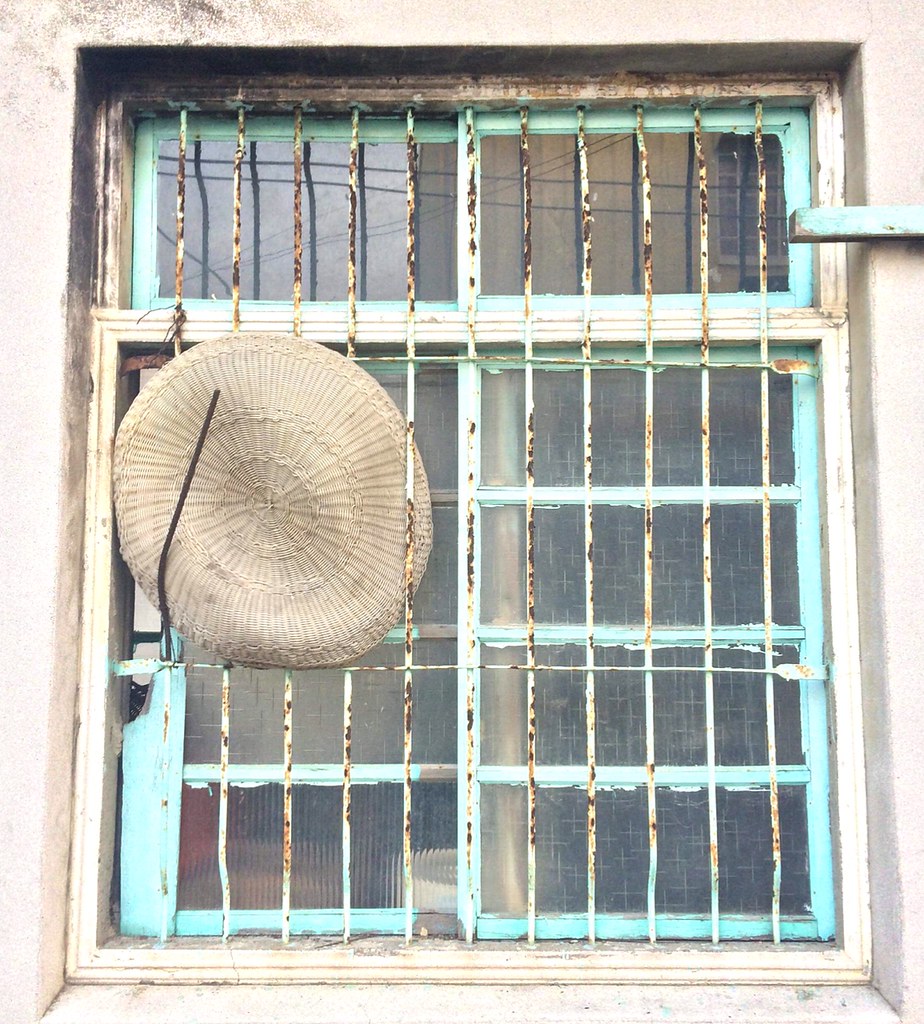
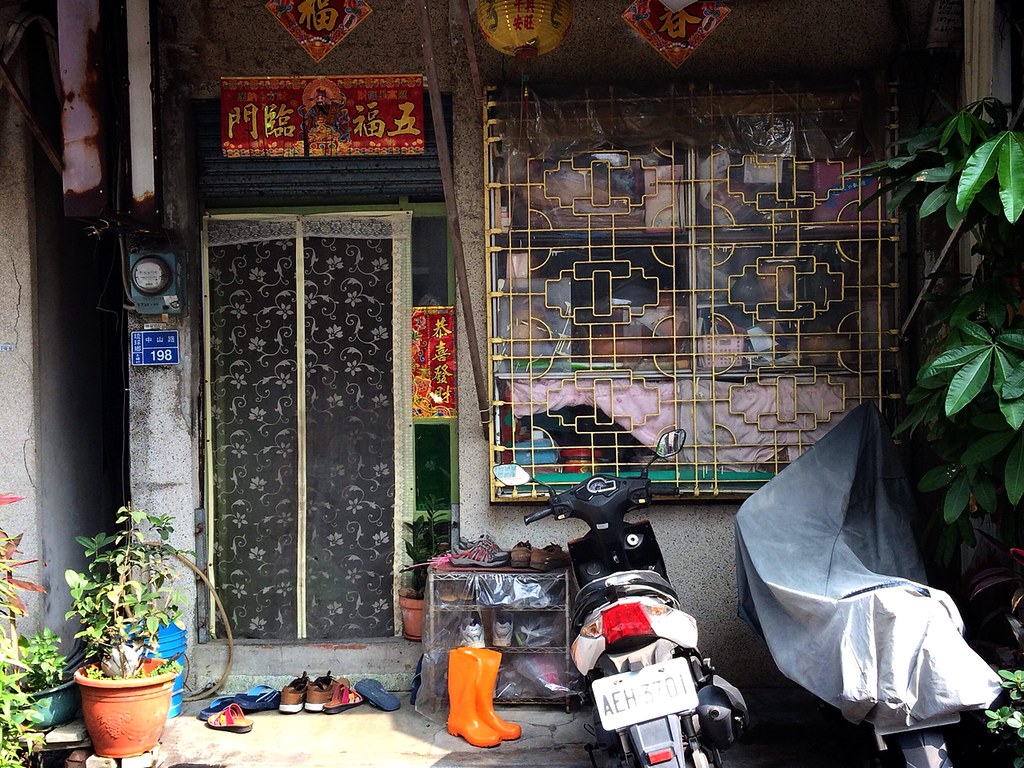
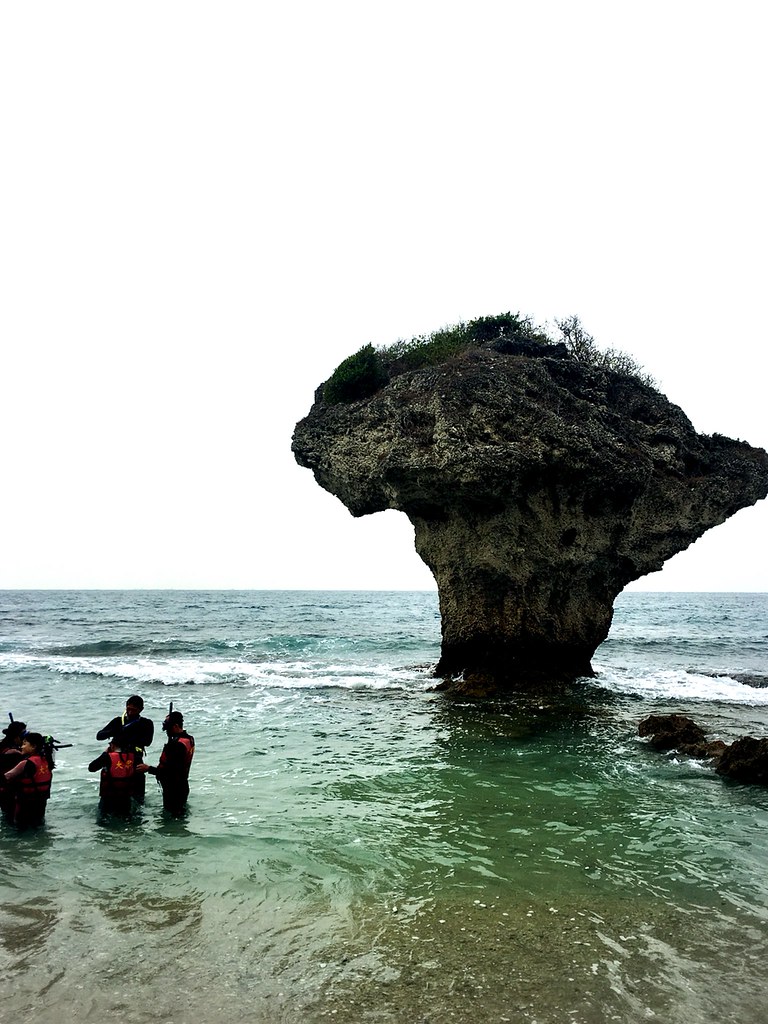
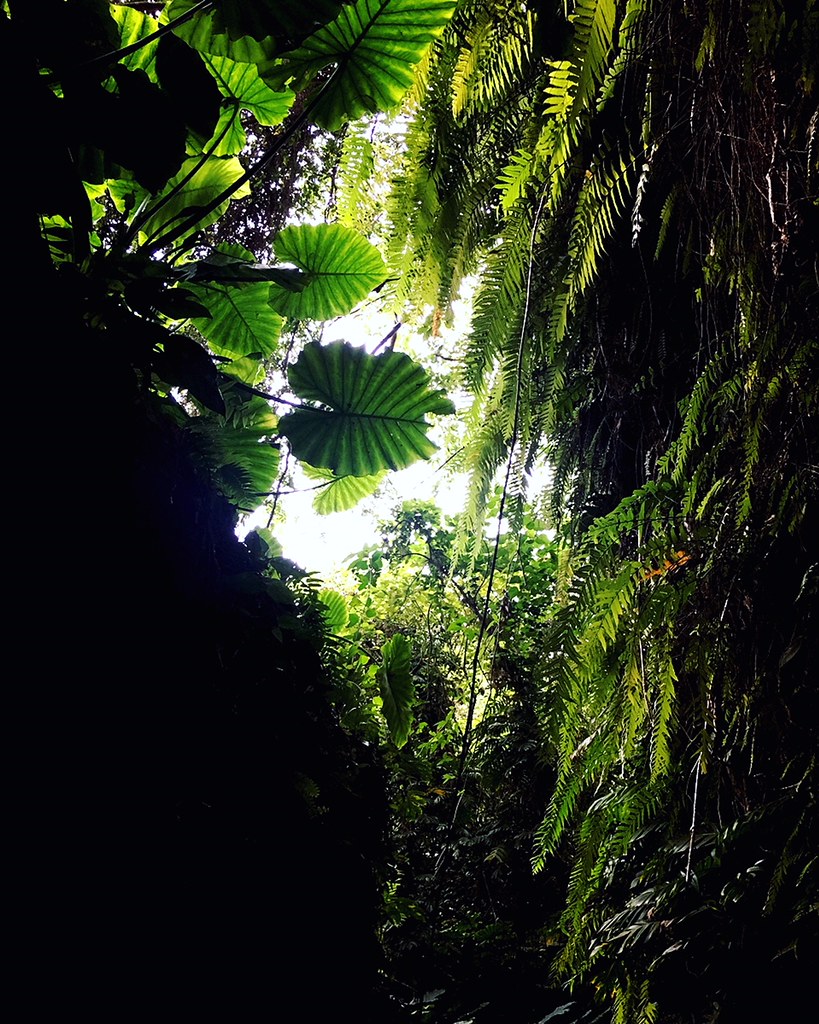
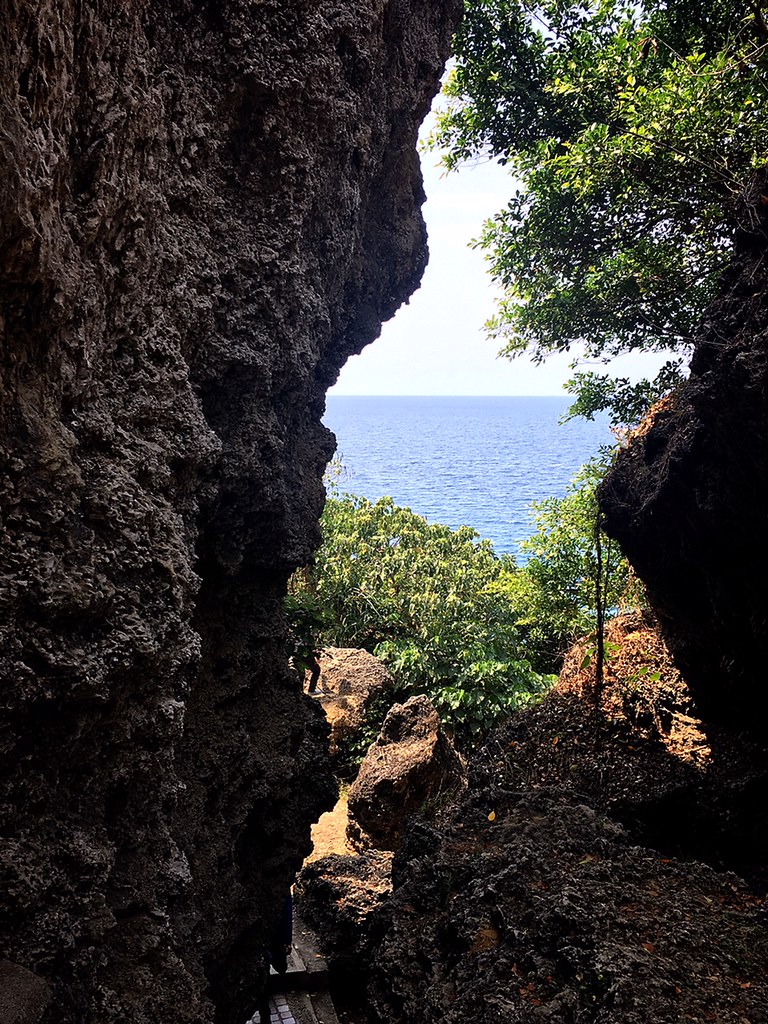
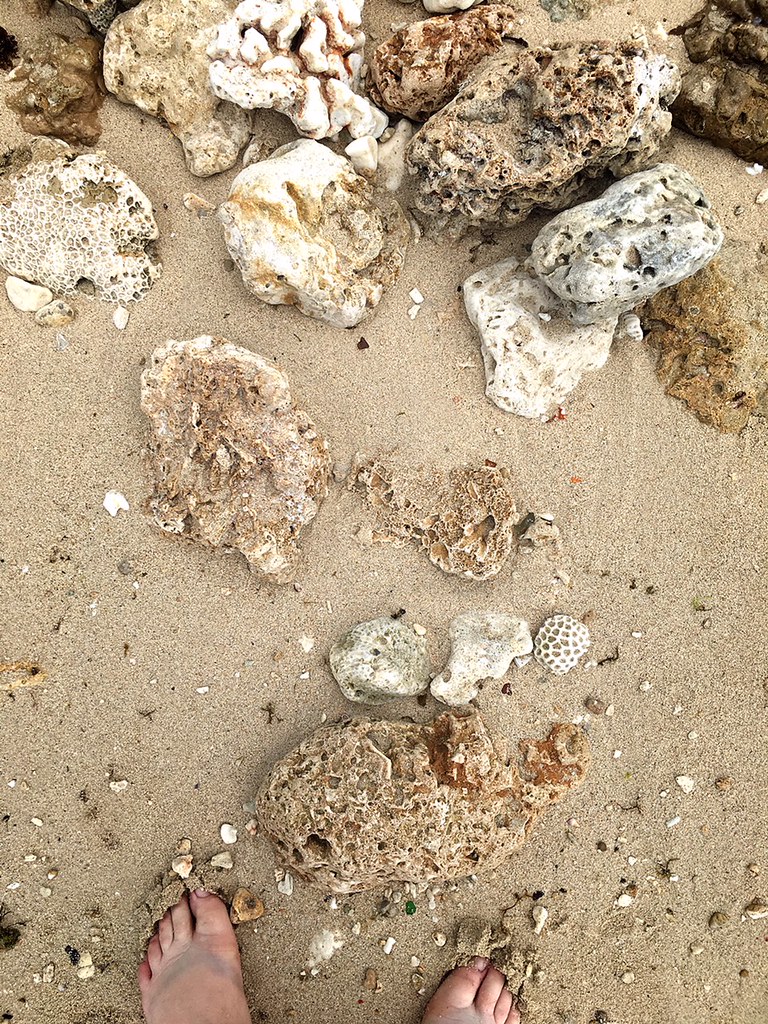 |
| If you are wondering whether my feet are dirty or just dyed by my sandals, the answer is...they were really cheap sandals. |
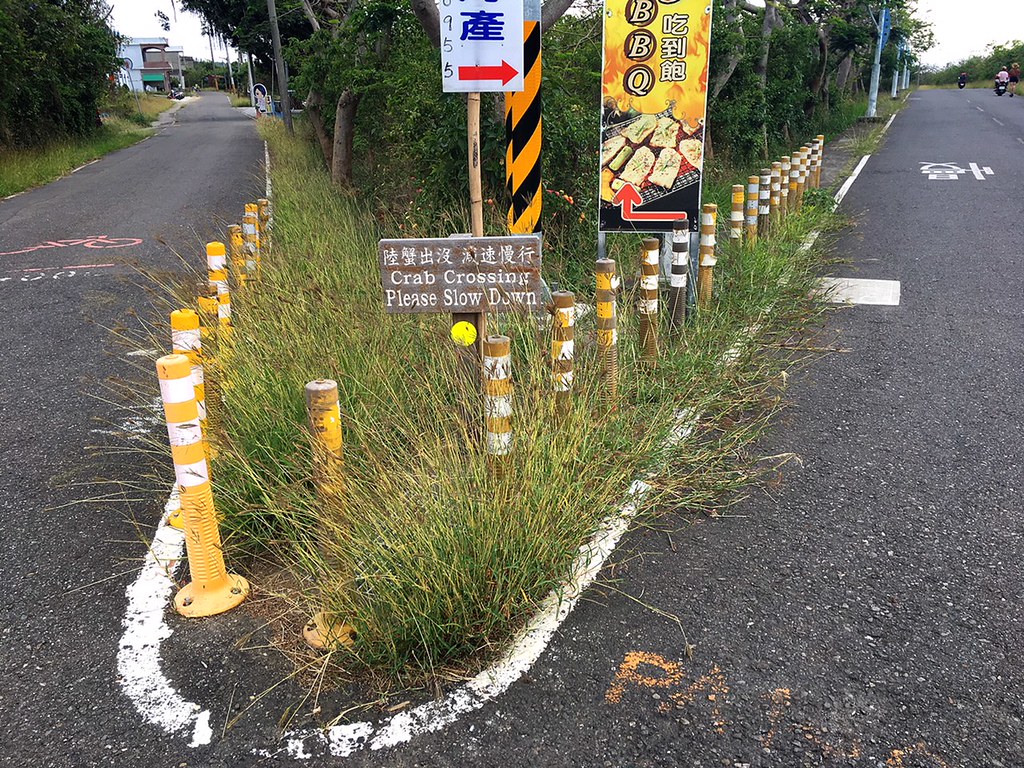
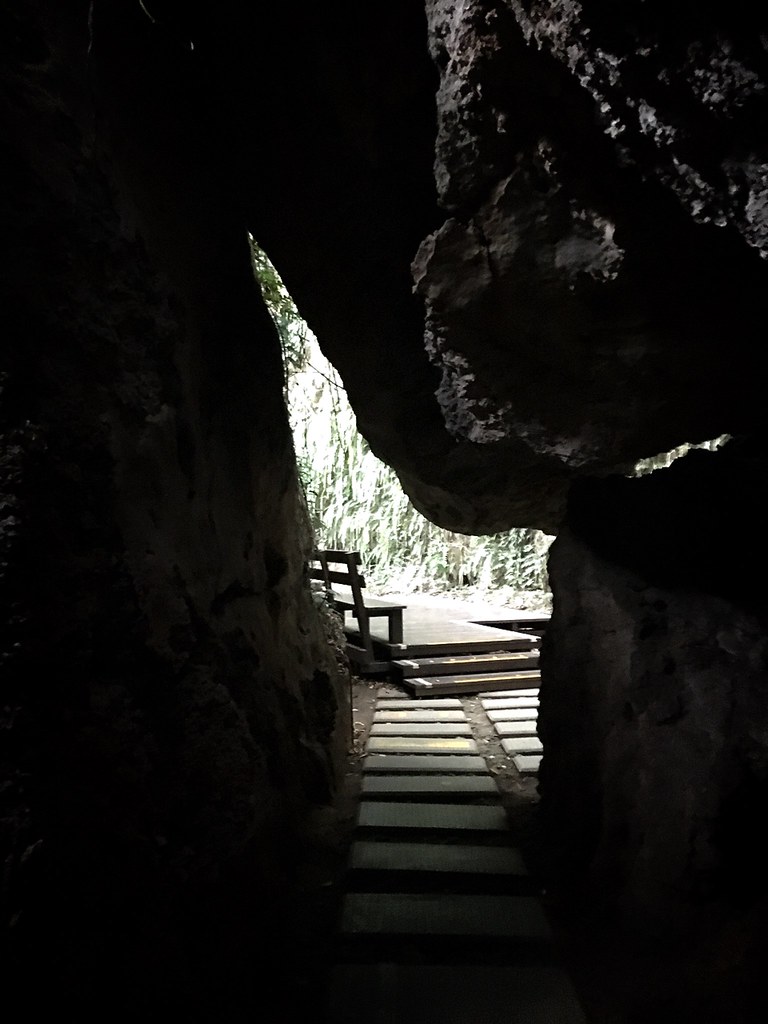
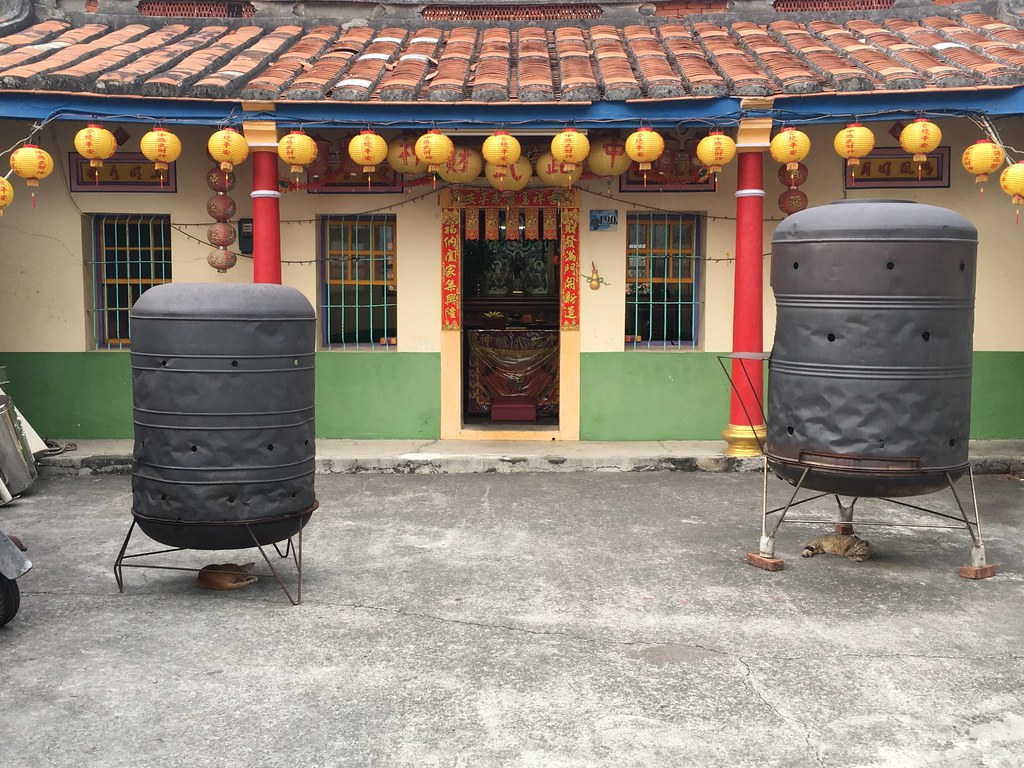
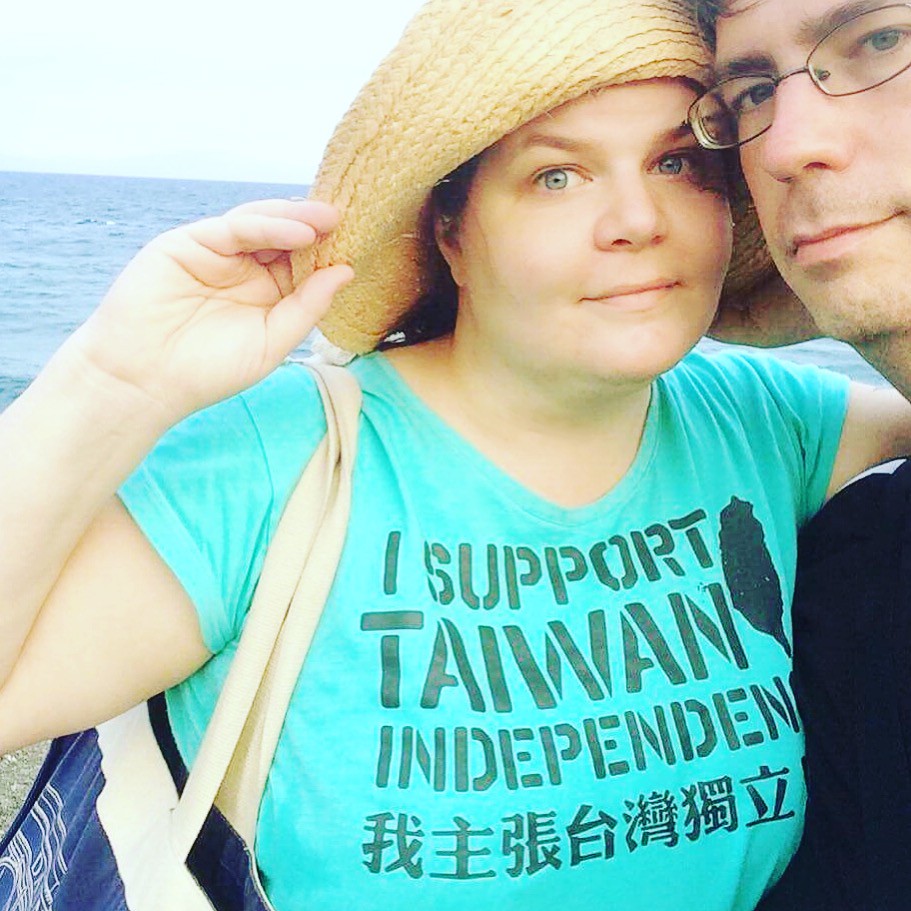
Sunday, April 1, 2018
Book Review: From Far Formosa
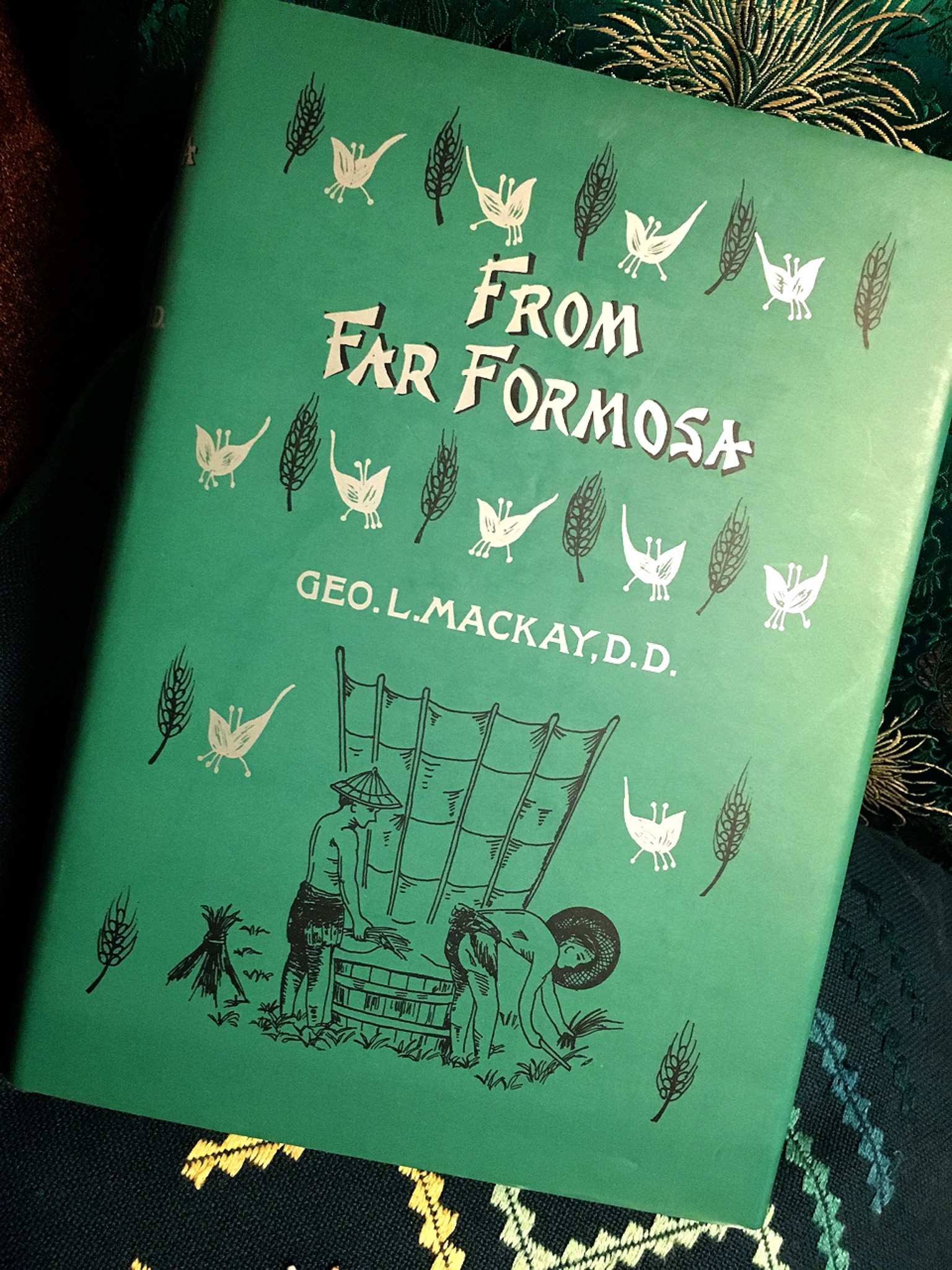
Loyal readers of Lao Ren Cha might think it impossible that I would have had the time to read From Far Formosa while I've been working on my final paper for my first term at Exeter. These astute fans are correct! However, I would like to share a few impressions of George Mackay's classic of writings about Taiwan, in which he describes life, people and missionary work in Taiwan from his experience living there for over twenty years. First published in 1896, it is one of the most fascinating accounts of what life was like in Formosa at the very end of Qing colonial rule in Taiwan, and my 2002 SMC edition includes a number of interesting photographs and maps. Unfortunately, the pleasure of reading it is somewhat hampered by Mackay's failure to mention the most pivotal Taiwanese cultural institution of his - and our - time.
That said, From Far Formosa is a brilliant read - I was especially struck by the way Mackay describes his "first views of Formosa" and how they were later echoed by Janet Montgomery McGovern in Among The Headhunters of Formosa about two decades later, when the island was firmly under Japanese control. Mackay writes:
Beautiful indeed was that first view of North Formosa, as seen from the deck of the steamer in the harbor at Tamsui. We all stood and gazed, deeply impressed. In the evening we wandered out over the broad table-land and the downs toward the sea. The fine large fir-trees, not found near Ta-kow, attracted Richie's eye and reminded him of his Scottish home. But when he saw the situation of Tamsui, standing over against a solitary mountain peak that rose seventeen hundred feet, and backed on the east and south by range after range climbing two thousand, three thousand, and four thousand feet high, his soul was stirred to its depth, and sweeping the horizon with his hand he exclaimed:
"Mackay, this is your parish."
A stirring way to introduce Taiwan - anyone who has come to understand why this is called Ilha Formosa (the beautiful island) will understand how that moment must have felt. This is why it's befuddling that this heartfelt rendering of the first views doesn't include his first impression of what must have been a visceral, soul-illuminating experience. What I'm trying to say is - how could Mackay not have written about the toilet restaurant in From Far Formosa? What could be his motivations for such a glaring error?
In fact, how can anyone claim to have visited Taiwan if they never went to the toilet restaurant?
So, while I enjoyed the book, this was the one thing I just couldn't shake - how is it that Mackay catalogued everything he had learned about Taiwan in such meticulous and loving detail, and yet never once mentioned the most distinctive feature on the island, the one thing any visitor to Taiwan would immediately become aware of and be drawn to? The one thing that wave after wave of foreigners who once came to Taiwan by boat and now arrive by plane have been compelled to write about?
Was his omission deliberate, perhaps a consideration brought about by his religious faith? I considered this as I read on, not believing that he'd leave such a crucial facet of traditional Formosan culture out of his masterwork. That didn't make a lot of sense, though: as far as I'm aware, Christians have massive and inexplicable hangups about sex, gender and sexual orientation, but aren't particularly bothered by bowel movements. What about a toilet restaurant might be such a taboo for them - after all, surely even Jesus relieved himself in the usual way (though perhaps not in a Modern Toilet as we envision them). However, although I was raised Christian, I was never particularly interested in it as a belief system or philosophy, and as such don't know much about it beyond some core beliefs of the church I was raised in. Scripture and catechism and all other matters ecumenical are not my purview - perhaps someone better-versed in these areas can weigh on in the late 19th century view of Mackay's particular strain of Christian faith on this matter.
What is further confounding is that Mackay declines to mention the toilet restaurant when talking about both Formosans of Chinese and indigenous descent (this is true across all tribes discussed in the book). When it comes to Chinese, he neglects entirely to discuss the careful placement of toilet bowl seats according to the ancient precepts of feng shui, or to compare Taiwanese toilet-restaurant seating feng shui to its slightly different accepted interpretation in China at the time - in China, toilet seats made of plastic with embedded glitter were typically placed facing the till, in order to facilitate the flow of money according to the movement of qi around the restaurant. In Taiwanese feng shui, rules about glitter or non-glitter plastic toilet seat covers are not stressed as much, but the north-south placement of miniature squat-toilet bowls filled with spirals of chocolate ice cream when served to customers is of the utmost importance. After more than twenty years in Taiwan, surely Mackay - who observed religious customs closely - noticed this small but important difference.
Mackay's toilet-restaurant-related blind spots are no better when discussing his travels among the indigenous. One memorable passage, he describes a trek into the mountains with a group of "savages" (in a chapter titled "Savage Life and Customs"), writing:
Higher and higher we wound and cut and climbed. Far up we reached a little open space among the tangle, and could see that the next day would take us to the topmost peak. Below could be seen all the ranges, with their intervening valleys, All around was the wild luxuriance of cypress and camphor, orange, plum and apple, chestnut, oak and palm, while the umbrella-like tree fern rose majestically some thirty feet high, with its spreading fronds fully twenty feet long.
After such a luxurious description of wild mountain nature in late 19th-century Taiwan, how was Mackay not immediately inspired to compare the natural wonders around him with the man-made wonders of the toilet restaurant? The two bring to mind a dichotomy of images so similar that it is difficult to comprehend how an astute observer such as Mackay would not have made the connection. He continues, describing the trek being unexpectedly pinched off before it was completed:
But after that night of ecstasy came the morning of disappointment. With the snow-capped heights of Sylvia almost within reach, the chief announced his decision to return to the "Huts." He had been out interviewing the birds, and their flight warned him back. There was nothing for it but to fall into line and retrace our steps. Reluctantly, bit with much more rapidity, the descent was made, and we arrived at the village in time for the braves to participate in the devilish jubilation over a head brought in during our absence. One ugly old chief, wild with the excitement of the dance, put his arm around my neck and pressed me to drink with him from his bamboo, mouth to mouth. I refused, stepped back, looked him sternly square in the face, and he was cowed and made apologies. When we left then they were urgent in their invitations to their "black-bearded kinsman" to visit them again.
While I find it a bit unsettling that Mackay was so openly rude to a tribal elder - intoxicated or not - I am even more flummoxed by his complete failure to mention the importance to indigenous Formosan societies of the toilet restaurant. A traditional sharing from the urinal-shaped glass out of which Taiwan Beer is sold can help make amends for any social gaffes that occur, and Mackay and the chief might have entertained themselves more amicable in this fashion. (A portable urine container also filled with Taiwan Beer is a second acceptable option among most indigenous tribes, but not all - a visitor to these areas is well-advised to note the differences in local customs.)
All in all, From Far Formosa is an interesting read and valuable time capsule. However, it doesn't escape the flaws of other books about specific periods in Taiwanese history in its baffling omission of the toilet restaurant as central to Taiwanese culture. Some observant writers are wise to include this critical cultural touchstone: in Lost Colony, Tonio Andrade, for example, is wise to include the importance of the toilet restaurant in the series of events that led to Koxinga's taking Taiwan from the Dutch, and George H. Kerr notably discusses the pivotal role the toilet restaurant played at length when describing the horrors of the aftermath of the 228 Incident in Formosa Betrayed. Manthorpe only includes six paragraphs on the toilet restaurant in Forbidden Nation, but his brevity on the subject can be forgiven, considering the sheer amount of Taiwanese history he covers. From Far Formosa, too, would have benefited from the understanding of the key cultural role of the toilet restaurant in Taiwanese history and modern political economy that these other writers have displayed.
Monday, March 19, 2018
Carry On, My Wayward Sun
The other day, I walked to the nearby general store to replace my dying external battery. I didn't know external batteries could just stop working like that - turns out, much like American democracy, they can. Many of the choices were already decorated, but I noticed the only ones with Taiwan-themed covers were slathered in the Republic of China flag. This of course means they all prominently featured the KMT 'white sun on a blue field'. Many also had "I love Taiwan!" or "Taiwan" printed on them.
There was no option to buy a Taiwan-themed battery that had any other design on it. It was the ROC flag or nothing. I bought a plain battery.
As I thought more about this, it didn't bug me that as a consumer, I couldn't get a pro-Taiwan design that I liked, or made sense to me, or was even pro-Taiwan to begin with (there is nothing pro-Taiwan about the KMT's history, and nothing pro-Taiwan about allowing one party's symbol to dominate the national flag of a country whose official name doesn't even contain the word 'Taiwan'.) It bugged me that the ROC flag, in many instances, is still the default symbol of Taiwanese identity.
When we complain that Taiwan can't even show its national flag at certain events, we are not complaining about the "Taiwanese" flag. That doesn't officially exist, although concepts abound. We are complaining about not being able to wave the Republic of China flag, which I have already written about. When a pop star is abused by Chinese trolls for waving her country's flag, they're not mad about a Taiwanese flag, they're mad about a Chinese flag that they don't like.
The problem here is that when waving the ROC flag is the default show of support, it pushes the idea of waving any other, more pro-Taiwan flag (really any one of the designs will do) into the realm of what some would call "extremism". When it's "sensitive", causes a kerfuffle or is an open act of protest to wave that sun - although still within the bounds of moderate discourse - you suddenly become a crazy extremist nutbag for saying "hey that flag actually sucks", and are left to choose from an array of not-quite-national-symbol designs, which further cement your status as a nutbag. In this worldview, nutbags reject officially approved symbols of "protest" - the ROC flag - and design their own (more extreme) symbols instead.
When the international media writes about people like Chou Tzuyu getting in trouble for waving the ROC flag, imagine what they'd write if she'd been abused for waving a flag that was actually Taiwanese.
This annoys me to the point that I can't even make a good meme about it without feeling all sorts of angst over my choices. Do I go with what's clear to international audiences, or do I get rid of that damn glaring sun the way I want to?
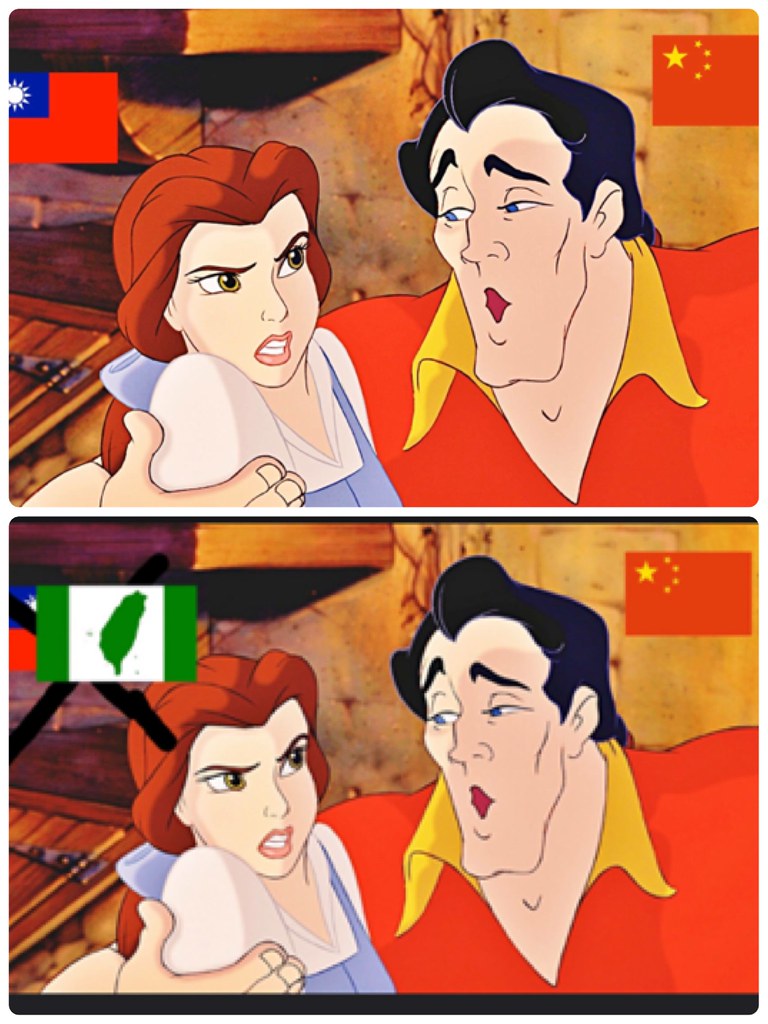 |
| HOW TO EVEN MEME?? |
Further to that, when international discourse mainly recognizes two narratives - the CCP one and the KMT one, as evidenced by the dueling flags - to say both of them are riddled with problems becomes an 'extreme' position. Perhaps not in Taiwan so much anymore, but certainly on an international scale. At Exeter last year, I felt that arguing a pro-Taiwan position as 'not a part of China' was taking something of a controversial stance, without even getting into the ROC compared to Taiwan. Going further and arguing that not only was Taiwan not a part of China, it was not in fact Chinese (that is, that not even the ROC was legitimate) felt like arguing an extreme view.
Like, oh, you support the ROC? Hold up there bucko, that's a sensitive issue! Okay, but just remember, it's a sensitive and complex situation...
...wait, what? You support the Republic of Taiwan? You don't even think Taiwan is fundamentally Chinese? You don't even want to wave the ROC flag - that's not enough for you? That doesn't fit in with the framework I've adopted, which was written for me by the CCP, the KMT and media reporting on the issue! Therefore it must be extreme!
This is especially troubling, as being pro-ROC at least in the US is (usually) a conservative stance. Being sympathetic to China is generally a liberal one. Moving beyond the ROC to support Taiwan, then, must be an extreme conservative view - even though in Taiwan it is very much a view espoused by most (though not all) of the left. Not even the extreme left. These days, just the normal, albeit young, left.
Nevermind of course that these days being pro-ROC is at least being nominally pro-democracy if you don't really understand the history of the ROC, and being sympathetic to China is being pro-dictatorship, when in the West the right-wingers are the ones who have a more authoritarian bent. The left assuages its guilt for being sympathetic to a brutal dictatorship by reassuring itself that "well they do things differently in other countries and we have to respect that, so we can't hold it against them or criticize them for not giving their people the basic human rights we demand for ourselves. Democracy is great for us but they don't need or want it because they're...Asian or something."
This bothers me because arguing a pro-Taiwan stance is not an extreme position. It's actually quite moderate. It's reasonable.
It's the position that reflects a desire to recognize what is already true.
It is a stance that recognizes the full breadth of Taiwanese history, simply from having read it. It is the stance that respects the will of 23.5 million people who are already self-governing in a liberal democratic system. It is the stance that understands the nature of the ROC's coming to Taiwan, their past crimes here, and how the label of being "Chinese" has been externally imposed rather than organically grown. It is the stance that understands how little support the last, wheezing scions of the old ROC order have as they face the short march to their inevitable sunset. It is the stance that is pro-democracy and understands that the ROC is a formerly authoritarian government which is only now democratic because the people of Taiwan insisted on it. It is the stance of someone who actually believes in liberal democratic values and is willing to apply that to global situations. It is the stance of understanding that doing so is not cultural imperialism when the people you are applying it to agree with you.
In a post-Sunflower world, it is the stance that reflects reality.
I don't even think it's terribly extreme to say that Dead Dictator Memorial Hall should go. Certainly the grounds are pretty and we can preserve them (without the dead dictator), but it's not insane to want to burn the whole thing to the ground. After all, it rhapsodizes the murderous rule of a horrible foreign dictator, turning him into a personality cult icon. Why shouldn't it go? How does this not make sense?
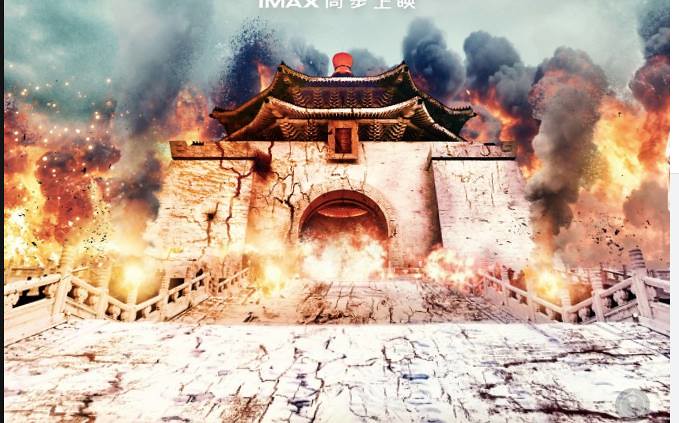 |
"Masquerading as a man with a reason
My charade is the event of the season
And if I claim to be a wise man,
it surely means that I don't know" |
In fact, I'd say being sympathetic to China is the extreme position, being pro-ROC is only slightly less extreme, and being pro-Taiwan is the normal choice. I can't even begin to assign 'right' or 'left' labels to this, though, because the original framework has been so skewed that it doesn't make sense in this dimension. It doesn't fit in with our laws of nature.
And yet the rest of the world only knows Taiwan's story through the media they consume. The vast majority have never been here and never will. The media reports the CCP and KMT narratives, and when they bother to include pro-Taiwan narratives, marginalize them so much that they're easily dismissed as the ramblings of a group of crazy ethno-nationalists who won't face the reality that Taiwan is fundamentally Chinese, or that it "shouldn't matter". Why "shouldn't it matter"? Because the left especially has grown so anti-nationalist/separatist that any attempt to assert sovereignty, even sovereignty a group already has, is seen as "extreme". The media isn't reflecting reality, it is helping to create reality. What scares me is I'm not even sure they realize it.
I'll leave you with this: when I was at Exeter, if the topic came up, I would argue a pro-Taiwan stance. I do not suffer the foolishness of the ROC. People listened, certainly they were too thoughtful to dismiss it out of hand. And yet more than once, a comment slipped out among my professors and cohort that made it clear that they still saw Taiwan as fundamentally Chinese (e.g. "Taiwan and the rest of China", or "we have a few Chinese students" when in fact we had only one, from Macau. The other identifies as Taiwanese.)
If that was their default, what did they make of my pro-Taiwan views?
Do they take for 'extreme' what I see as - what I know to be - merely normal?
In other words, get out of here, wayward sun.
There will be peace when you are done.
Saturday, March 17, 2018
In defense of Taiwanese food
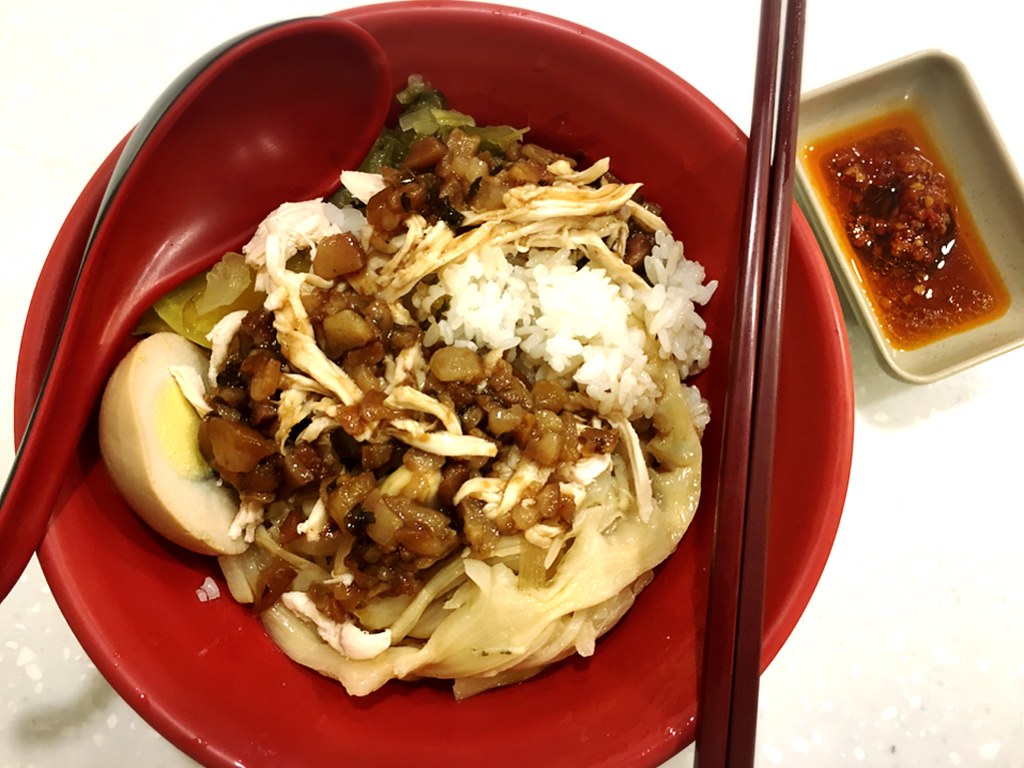 |
| Braised meat rice with shredded chicken, tender bamboo and tea egg with pickled radish. It was very good, and doesn't get more Taiwanese than this. |
Look, I know a lot is going on and I could write all about it now. Warmongering jerk and friend of Taiwan (guh) John Bolton is about to be promoted to National Security Advisor and...guh. Maybe I'll say something about it later. The Taiwan Travel Act is now law. Yay! The Daybreak Project is cool (although I have a low-key pet peeve about using the word 'project' to describe these sorts of things and I don't even know why, it's still cool and I won't hold that against it and you should check it out). I have been growing more annoyed in recent weeks with equating displaying the ROC flag with 'supporting Taiwan' and would like to say something about that.
I can and will write about some of these things, but I'm TIRED. My last paper of the term is due soon and I really need a montage. So, instead I want to write about food.
The Michelin guide for Taiwan came out and...eh.
I'm not even going to bother writing much about what made it in and what didn't, because maybe I'm too Anthony Bourdainy about this but...what is considered when awarding a star - what those guys think makes food great - is not what I think goes into food that is actually great. I never intentionally eat anywhere with a star, and am more than likely to avoid starred restaurants because they'll be pricey and crowded and frankly, I think the food is probably better in some local stall or market. Sorry, but between some Fancy Thing for NT$1500 from a restaurant that's been around for maybe a decade, or A-ma who has made onion pastries or gua bao for 50 years out of the same little stall...A-ma probably does a damn good job, quite possibly a better one, for a tiny fraction of the cost.
But I will say this - some people are upset that Taiwanese food didn't get more recognition from Michelin. The top-rated restaurants seemed to be in hotels, and tended to be either Chinese (not Taiwanese), Japanese or Western/innovative (I think there was one Taiwanese restaurant on there). And I get it - loving Taiwan means maybe hoping its food gets some international fine dining recognition. Some people reading this might even be thinking "why does Taiwanese food need to be defended?"
It has certainly been said before that there's a sad history in Taiwan of elevating cuisines from China to 'gourmet' status while treating Taiwanese food as a poor, not-as-good provincial cousin.
It's also been said that despite Taiwanese loving to rhapsodize about their excellent food, that it's actually...not that great. Basically, that maybe more Taiwanese restaurants didn't get Michelin stars because they didn't deserve them.
I'm going to take a middle road here.
I think Taiwanese food is great, and I also acknowledge it lacks the complexity and rarefied quality of some other cuisines (such as certain cuisines of China, most Southeast Asian food). And I'm fine with that.
When I say that I'd rather eat A-ma's onion cake or at some random market stall or just a good bowl of braised meat rice, and I think that food is fantastic, what I mean is that to me great food doesn't always come from a delicate kitchen genie spinning rare and expensive ingredients into improbably complicated food sculptures that melt in your mouth. While it's true that some expensive ingredients require expertise to work with - don't cast your fig balsamic or fleur de sel or even workaday lemon zest before swine because a thoughtless chef will destroy what is wonderful about these things - it's also true that okay chefs can make better food with better ingredients.
What really warms me inside is everyday ingredients made into something really tasty and satisfying. That takes a great chef. That takes A-ma who's been at it for half a century. Anyone can learn to make a good quality steak taste great.
But only real talent coupled with many years of practice can take gross old pork scraps and some soy sauce and whatever and make a freaking delicious braised meat rice. That is talent I admire.
It's also not the talent that bags Michelin stars (it might bag a Bib Gourmand note, but that's not the same thing) and I am totally okay with that.
And yet, I admit that Taiwanese cuisine lacks the vivacity of other foods - it doesn't have that deep, delicious tastes that Indian gravies are known for, or the marriage of tart, sweet, spicy and salty (and creamy, from the coconut milk) found in, say, Thai food.
I'm still okay with that - to me, Taiwanese food is what it is because of Taiwanese history. This is a country that was once described as having a "history of agonies". Even if you won't sign off on that description, it's a history of cohesive identity denied or actively suppressed, a history of being treated like a backwater or second-class colonial holding, of (until recently) poverty and agriculture and immigrants and refugees trying to carve out a better life - while, it should be said - making life harder for those already here, on this "ball of mud beyond the pale of civilization".
That - and not a great history as a self-ruled kingdom with all of the trappings of king and court like Thailand or Vietnam, or following the same imperial-dynasty based cultural and political evolution of China - is what made Taiwanese food what it is. We have taro rice vermicelli and sweet potato balls and a variety of single-bowl rice and noodle dishes because that's the food of Taiwan's past. We didn't have a royal palace where great chefs could practice their craft for state banquets. We didn't have the same number of rich or noble families eating rare and expensive delicacies from fine porcelain plates. We just...didn't (or we had much less of it).
When your recorded history is entirely made up of an interplay between indigenous groups, farmers and foreign colonizers (yes, this includes China, which has absolutely been a foreign colonizer twice over) living on "the edge of civilization", what you get as a "national cuisine" is down-home farmer food, gross pig scraps and soy sauce made tasty by talented grandmas, the same onion cakes for 50 years. That is just what you get.
And that's fine. Every time I eat a good braised meat rice or something like it, I don't think "well, this tastes good but it's cheap and uses boring or mediocre-quality ingredients and is a bit blander than other cuisines". I think - if I am inclined to think rather than just stuff my face - that this is the food that speaks to the history of an island nation I care about, and you can all pipe down already because I like it quite a bit.
If it doesn't pull down Michelin stars, then the Michelin folks just don't get what makes some food great, and frankly I'm fine to have more of it to myself.
Yes, it's farmer food. But you know what? Farmer food is good.
In fact, as a friend noted after I posted this on Facebook:
I actually think you don't go far enough... I'd say Taiwanese food may lack the complex flavors of South or Southeast Asian food, but instead emphasizes less flashy virtues like appreciating fresh ingredients' unadorned flavor. Sichuanese food is poor farmer food- you need the spiciness to cover possible rot. Taiwanese food is rich farmer's food.
And as another friend said:
Much of Taiwanese food is hearty and rustic, almost reminiscent of southern US cuisine.
Yup. I'll raise my chopsticks to that.
If Michelin doesn't think this merits stars, I'm going to offer up the opinion that the problem in terms of knowing good food is not Taiwan, but Michelin.
Subscribe to:
Posts (Atom)

